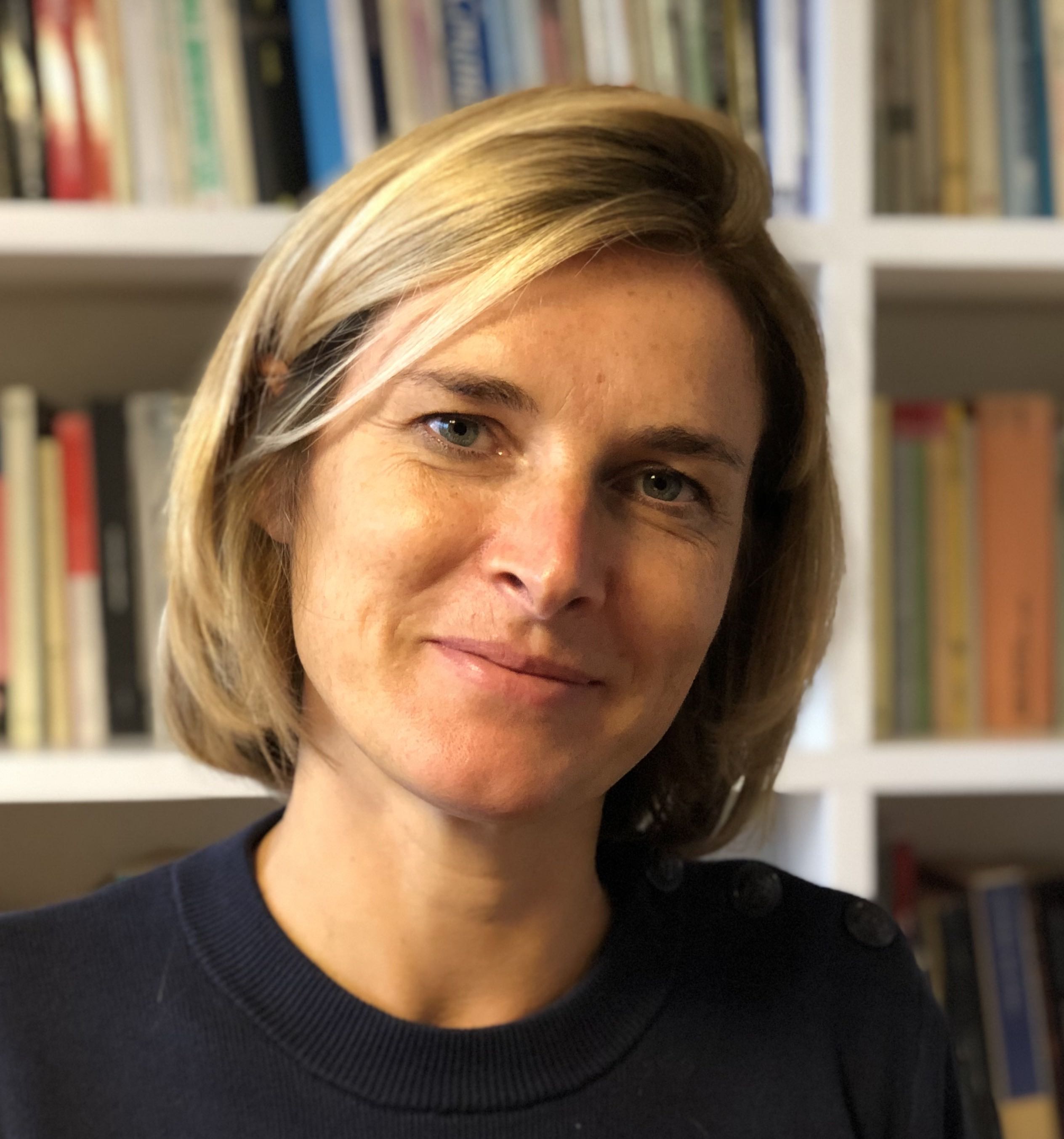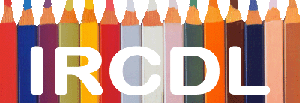About IRCDL
Since 2005 the Italian Research Conference on Digital Libraries is a yearly date for researchers on Digital Libraries and related topics, organized by the Italian Research Community. Over the years IRCDL has become an important national forum focused on digital libraries and associated technical, practical, and social issues. IRCDL encompasses the many meanings of the term “digital libraries”, including new forms of information institutions; operational information systems with all manner of digital content; new means of selecting, collecting, organizing, and distributing digital content; and theoretical models of information media, including document genres and electronic publishing. Digital libraries may be viewed as a new form of information institution or as an extension of the services libraries currently provide. Representatives from academia, government, industry, research communities, research infrastructures, and others are invited to participate in this annual conference. The conference draws from a broad and multidisciplinary array of research areas including computer science, information science, librarianship, archival science and practice, museum studies and practice, technology, social sciences, cultural heritage and humanities, and scientific communities. For its 20th birthday, the focus will be twofold: on the one hand, towards the future, by presenting novel contributions (e.g., investigating techniques and applications from Artificial Intelligence and Semantic Web Technologies) that may have a drastic impact on empowering the connection between digital and library science, especially at the conjunction with Open Science and academic publishing. On the other hand, towards the past, celebrating the birth and growth of the IRCDL community, which throughout the last 20 years embraced interests from a broad range of academic backgrounds comprehending scholarly communication (e.g., research data, research software, digital experiments, digital libraries), e-science/computationally-intense research (e.g., scientific workflows, Virtual Research Environments, reproducibility) and library, archive and information science (e.g., governance, policies, open access, open science, and bibliometrics).
CALL FOR PAPERS IRCDL 2024
Submissions are welcome concerning theory, architectures, data models, tools, services, infrastructures.
A list of possible topics (but not limited to) for the conference is the following:
- Applications of Digital Libraries
- Applications of Machine Learning Techniques to Research Data and DL
- Citation Analysis and Scientometrics
- Cultural Heritage Access and Analysis
- Data Citation, Provenance and Pricing
- Data and Information Lifecycle (creation, store, share and reuse)
- Data and Metadata Quality
- Data Repositories and Archives
- Digital Preservation and Curation
- Document Analysis (Layout, Text, Images)
- Knowledge Acquisition from scientific papers
- Knowledge Discovery and Representation in Digital Libraries
- Human-Computer Interaction and User Experience
- Information Extraction from tables and figures in scientific literature
- Information Retrieval and Access
- Metadata (definition, management, curation, integration)
- Multi-media handling
- Ontologies
- Open Data and FAIR Data
- Open Science: models, practices, mandates, and policies
- Quality and evaluation of digital libraries
- Research Infrastructures
- Scholarly Communication
- Semantic Web Technologies and Linked Data for DLs
- Services for Digital Arts and Humanities
- Standards and Interoperability
- User Participation
SUBMISSION FORMAT
Research papers, describing original ideas on the listed topics and on other fundamental aspects of digital libraries and technology, are solicited. Moreover, short papers on early research results, new results on previously published works, and extended abstract on previously published works are also welcome. Research papers presenting original works should be in the 10-12 pages range, short papers should be in the 6-7 pages range and extended abstract should be 5 pages long. For all the submission types the references are not counted in the page limit. Papers must be in the CEUR-ART single column style.
Templates:
The accepted papers will be published in the IRCDL 2024 Proceedings. The Proceedings will be published by CEUR-WS, which is gold open access and indexed by SCOPUS and DBLP.
SUBMISSION MODE
Authors must submit their papers via Microsoft CMT: https://cmt3.research.microsoft.com/IRCDL2024.
Important Dates
Submission Deadline:
Acceptance Notification:
Camera-Ready Deadline:
Conference:
Organization
General Chair
- Antonella Poggi, "La Sapienza "University of Rome, Italy
Program Chairs
- Eleonora Bernasconi, University of Bari A. Moro, Italy
- Andrea Mannocci, ISTI-CNR, Italy
Proceedings Chair
- Angelo Salatino, The Open University, Milton Keynes, UK
Local Organization
- Davide Lanti, University of Bozen, Italy
- Gianmaria Silvello, University of Padua, Italy
Publicity and Web Chair
- Fabio Giachelle, University of Padua, Italy
Program Committee
- Massimiliano Assante, CNR-ISTI
- Miriam Baglioni, CNR-ISTI
- Nicola Barbuti, University of Bari – A. Moro
- Valentina Bartalesi, CNR-ISTI
- Miguel Ceriani, CNR-ISTC
- Marilena Daquino, University of Bologna
- Giorgio Maria Di Nunzio, University of Padova
- Guglielmo Faggioli, University of Padova
- Alex Falcon, University of Udine
- Stefano Ferilli, University of Bari – A. Moro
- Amel Fraisse, University of Lille
- Donatella Firmani, Sapienza University of Roma
- Fabio Giachelle, University of Padova, Italy
- Ornella Irrera, University of Padova
- Davide Lanti, Free University of Bozen-Bolzano
- Francesco Leotta, Sapienza University of Roma
- Paolo Manghi, CNR-ISTI
- Simone Marinai, University of Firenze
- Riccardo Martoglia, University of reggio Emilia
- Alessandro Mosca, Free University of Bozen-Bolzano
- Viviana Patti, University of Torino
- Beatrice Portelli, University of Udine
- Domenico Redavid, University of Bari A. Moro
- Rossana Damiano, University of Torino
- Martin Ruskov, University of Milano
- Giuseppe Serra, University of Udine
- Luigi Siciliano, Free University of Bozen-Bolzano, Italy
- Angelo Salatino, Open University
- Gianmaria Silvello, University of Padova
- Manuel Striani, University of Piemonte Orientale
- Anna Maria Tammaro, University of Parma
- Maria Theodoridou, ICS-FORTH
- Thanasis Vergoulis, IMSI, “Athena” RC
- Miriam Baglioni, CNR-ISTI
PROGRAM
Opening session
Nanopublications
Building and Exploiting a Web of Machine-Readable Scientific Facts to Make Discoveries
Nicola Raffaele Di Matteo (Dalhousie University)*; Andrea Schimmenti (Univerità di Bologna); Fabio Vitali (University of Bologna)
Publishing CoreKB Facts as Nanopublications
Fabio Giachelle (University of Padova); Stefano Marchesin (Università di Padova); Laura Menotti (University of Padua)*; Gianmaria Silvello (University of Padova)
Coffee Break

Invited talk Sara Tonelli (Fondazione Bruno Kessler)
Title: Toxic Language Detection: Why should computers decide when humans disagree?
LLMs and NLP-related techniques
Exploiting Large Language Models to Train Automatic Detectors of Sensitive Data
Simone De Renzis (Università di Padova)*; Dennis Dosso (Siav S.p.A.); Alberto Testolin (University of Padova)
Resolving duplicates in Large Multiple-Choice Questions Repositories
Valentina Albano (Dip. Funzione Pubblica,); Donatella Firmani (Sapienza University)*; Luigi Laura (Uninettuno University); Jerin George Mathew (Sapienza University); Anna Lucia Paoletti (Dip. Funzione Pubblica); Irene Torrente (Formez)
Evaluating Differential Privacy Approaches for Information Retrieval
Guglielmo Faggioli (University of Padova)*; Nicola Ferro (University of Padova)
File formats conversion issues in digital libraries
Stefano Allegrezza (Università di Bologna)*
Lunch Break
20 years of IRCDL (Panel)
Moderator: Costantino Thanos
Panelists: Maristella Agosti, Floriana Esposito, Domenico Saccà
Coffee Break
Knowledge Representation and Knowledge Management
A Platform To Communicate Knowledge: K-COM
Giovanni Addamo (ENEA); Fabio Cignini (ENEA); Enrico Cosimi (ENEA); Vittoria Cozza (University of Verona)*; Giangiacomo Ponzo (ENEA); Maria Salvato (ENEA); Veronica Tomassetti (ENEA)
Evaluation of Expressing without asserting approaches in RDF. The case of Conjectures
Valentina Pasqual (University of Bologna)*; Gerald Manzano (University of Bologna); Eduart Uzeir (University of Bologna); Francesca Tomasi (Università di Bologna); Fabio Vitali (University of Bologna)
A Holistic Ontology for Digital Libraries
Stefano Ferilli (University of Bari)*; Eleonora Bernasconi (University of Bari Aldo Moro); Davide Di Pierro (Università degli Studi di Bari); Domenico Redavid (University of Bari); Liza Loop (Loop Center)
CH Case studies
A tool for empowering Symbol Detection through Technological Integration in Library Science. A case study on the Voynich manuscript
Eleonora Bernasconi (University of Bari Aldo Moro)*; Stefano Ferilli (University of Bari)
Ontofest: An Ontology to Integrate and Retrieve Data from the Locarno Film Festival Archives
Alessandro Cosentino (Università della Svizzera italiana)*; Webert Júnio Araújo (Universidade Federal de Minas Gerais); Fabio Crestani (Universita della Svizzera italiana)
A Novel Methodology for Topic Identification in Hadith
Sania Aftar (University of Modena and Reggio Emilia)*; Luca Gagliardelli (University of Modena & Reggio Emilia); Amina El Ganadi (University of Modena and Reggio Emilia); Federico Ruozzi (University of Modena and Reggio Emilia); Sonia Bergamaschi (Università di Modena e Reggio Emilia)
The MAGIC project: first research results
Stefania Conte (University of Naples Federico II)*; Gian Marco Di Domenico (SA Documents S.r.l.); Andrea Mazzei (SA Documents S.r.l.); Andrea Mazzucchi (University of Naples Federico II); Guido Russo (Università di Napoli Federico II); Alessandro Salvi (Netcom Group S.p.a.); Augusto Tortora (University of Naples Federico II)
Coffee Break
Open Science & Education
An Overview of Open Science in Italy
Alessia Bardi (CNR - ISTI); Leonardo Candela (CNR-ISTI)*; Dario Mangione (CNR-ISTI); Gina Pavone (CNR)
Research and Teaching Public Communication of Science and Technology on Digital Data
Emanuele Di Buccio (University of Padova)*; Federico Neresini (University of Padova)
Mapping bibliographic metadata collections: the case of OpenCitations Meta and OpenAlex
Elia Rizzetto (University of Bologna, Department of Classical Philology and Italian Studies)*; Silvio Peroni (University of Bologna, Department of Classical Philology and Italian Studies)
What motivates university students to engage in learning computer skills?
Andrea Micheletti (University of Padua)*; Nicola Orio (University of Padova); Daniel Zilio (University of Padova)
Paving the Way for Personalized Museums Tours in the Metaverse
Alex Falcon (Università degli Studi di Udine)*; Beatrice Portelli (University of Udine ); Ali Abdari (University of Udine); Giuseppe Serra (University of Udine)
Lunch Break
Challenges in Library science
HeRO: A Semantic Framework for Heritage Risk Assessment in the SIRIUS Project
Sebastian Barzaghi (University of Bologna)*
A Geospatial and Time-based Reconstruction of the Venetian Lagoon in a 3D Web Semantic Infrastructure
Ludovica Galeazzo (Università degli Studi di Padova)*; Remo Grillo (I Tatti - The harvard university center for italian renaissance studies); Gianmarco Spinaci (Villa I Tatti)
The role of libraries for PDA
Adele Gorini (Università di Bologna)*
Closing
Timing for presentations:
- long papers: 25 minutes (20' presentation + 5' discussion)
- short papers: 15 minutes (10' presentation + 5' discussion)
- extended abstracts: 15 minutes (10' presentation + 5' discussion)
Venue
Casa della Gioventù universitaria, Università di Padova, Via Rio Bianco, 12, 39042 Bressanone BZ, Italy
Casa della Gioventù universitaria, Università di Padova
Keynote Speaker

Sara Tonelli
Head of Research Unit, Fondazione Bruno Kessler
Sara Tonelli Head of Research Unit (Fondazione Bruno Kessler)
Title: Toxic Language Detection: Why should computers decide when humans disagree?
Abstract
Social media messages are often written to attack specific groups of users based on their religion, ethnicity or social status, and they can be particularly threatening to vulnerable users such as teenagers. It is therefore very important to develop reliable, unbiased and robust detection systems to support stakeholders in fighting online hatred and toxic content. Although state-of-the-art systems yield very good classification results, the problem is far from being solved. In my talk, I will discuss which issues still affect the development of toxic content detection systems, in particular the problem of dealing with annotators’ disagreement when training and evaluating such systems. I will also address the role of contextual information in threads and the potential of current generative models for data augmentation.
Patronage
Supported By
Registration
Please register to IRCDL 2024 by using this form: * Registration *
Regitration fees
EARLY BIRD (up to 02 February 2024): Regular €100,00 and Student €80,00
LATE BIRD (up to 20/02/2024): Regular €130,00 and Student €100,00






